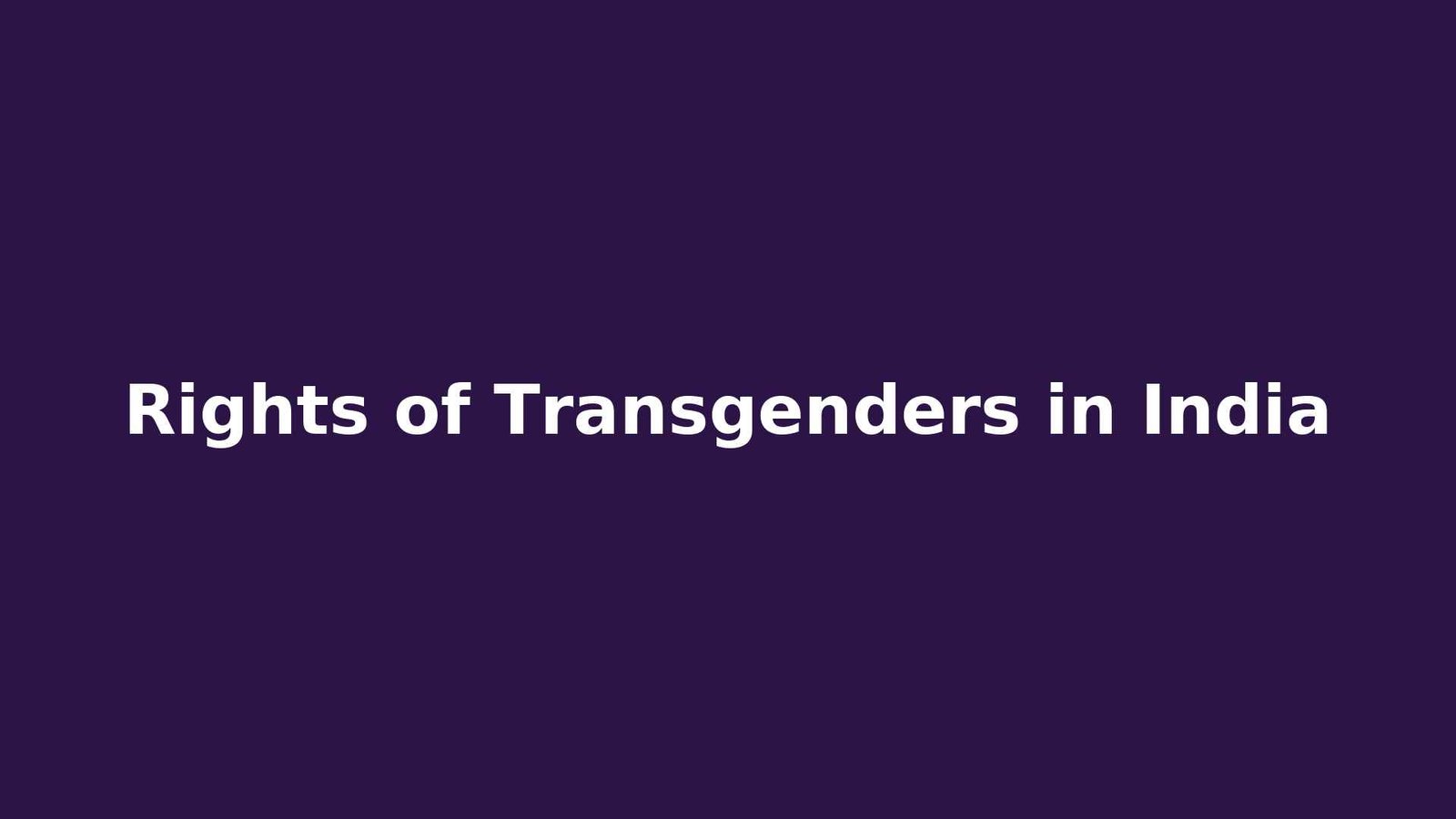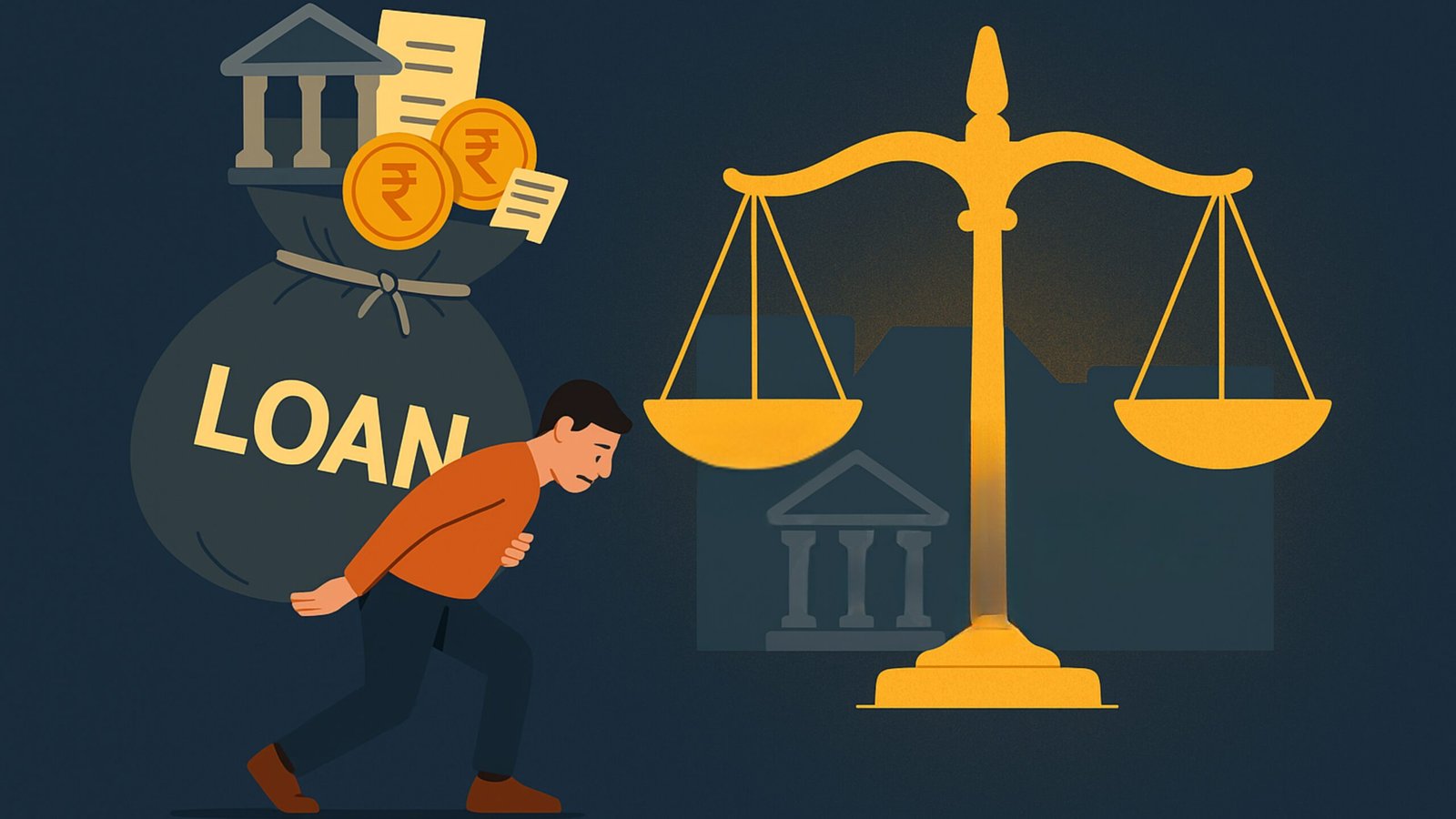On this page you will read detailed information about What are the Rights of Transgenders in India.
For a long time, the transgender community in India was marginalized and denied equal participation in social, cultural, and economic life. While history shows that transgender persons, often referred to as hijras or kinnars, once held respected positions in royal courts and communities, colonial laws and social prejudice pushed them to the margins.
Over the past few decades, however, India has made important legal and social strides to recognize and protect the rights of transgender persons. This progress has been driven by constitutional guarantees, landmark judicial pronouncements, and specific legislation. Let’s explore the rights of transgenders in India, how they evolved, and the challenges that remain.
Constitutional Framework
The Indian Constitution is the foundation for equality and dignity for all citizens, including transgender persons.
- Right to Equality (Articles 14–18):
These provisions guarantee equality before the law and prohibit discrimination based on sex, which has been interpreted to include gender identity. The Supreme Court has clarified that “sex” is not limited to biological male and female but includes transgender identities. - Right to Freedom (Article 19):
Every citizen has the freedom of expression, movement, and profession. For transgenders, this includes the right to express their gender identity, dress as they choose, and engage in lawful employment without discrimination. - Right to Life and Personal Liberty (Article 21):
This ensures dignity, privacy, and autonomy. For the transgender community, it means the right to live as per their self-identified gender and to be protected from violence and harassment. - Right Against Exploitation (Articles 23–24):
Many transgender persons face exploitation, including forced begging or bonded labor. These constitutional safeguards protect them from such practices.
In essence, the Constitution provides a strong foundation, but it required judicial and legislative recognition to make these rights meaningful.
The NALSA Judgment (2014): A Landmark
The turning point for transgender rights in India came with the National Legal Services Authority (NALSA) v. Union of India judgment in April 2014.
The Supreme Court recognized transgender persons as the “third gender” and held that:
- Transgender persons have the right to self-identify their gender as male, female, or third gender.
- The government must treat them as socially and educationally backward classes, making them eligible for reservations.
- They are entitled to equal protection under the Constitution, including health care, education, and employment opportunities.
The NALSA judgment was historic because it went beyond decriminalization; it actively directed governments to take affirmative steps for transgender inclusion.
The Transgender Persons (Protection of Rights) Act, 2019
Following the NALSA judgment, Parliament enacted the Transgender Persons (Protection of Rights) Act, 2019. Though debated and criticized, it remains the central legislation for transgender rights in India.
Key Provisions of the Act
- Right to Recognition of Identity:
Transgender persons can apply for a certificate of identity through the District Magistrate. This certificate officially recognizes them as transgender. - Prohibition of Discrimination:
The Act prohibits discrimination in:- Education
- Employment
- Healthcare
- Access to public places
- Housing and accommodation
- Right to hold public or private office
- Right to Residence:
No transgender person can be separated from their family or denied the right to live in the household. If family support is absent, they must be provided safe homes or rehabilitation centers. - Health Care Rights:
Governments must ensure access to medical facilities, separate HIV surveillance, and gender-affirmative care. - Welfare Measures:
Provisions for vocational training, self-employment schemes, and rehabilitation support are included to improve economic participation. - Offences and Penalties:
Acts like denying a transgender person public services, physical or sexual abuse, and mental harassment are punishable under this law.
While the Act is progressive in intent, it has been criticized for requiring a bureaucratic process to “certify” transgender identity, which activists argue undermines the principle of self-identification recognized by the Supreme Court.
Education and Employment Rights
Transgender persons have the right to education and employment free from discrimination. Several universities now have gender-neutral admission policies, and some have introduced “other” categories in forms. The government also announced reservation policies for transgender persons in education and jobs, though implementation remains patchy.
In employment, the law prohibits unfair treatment in recruitment, promotions, and workplace conditions. Companies are encouraged to create inclusive workplaces, provide gender-neutral washrooms, and adopt diversity policies.
Healthcare Rights
Healthcare has been one of the most pressing concerns for transgender persons, especially access to gender-affirmative surgery, counseling, and mental health support.
- The 2019 Act requires governments to set up medical facilities specifically for transgender persons.
- Schemes like Ayushman Bharat include provisions for gender-affirmative surgeries.
- Awareness campaigns are mandated to train healthcare staff in dealing with transgender patients respectfully.
However, in practice, stigma, lack of trained doctors, and high costs often deny transgender persons their healthcare rights.
In the previous post, we had shared information about Navigating the Journey: A Guide to Migrant, Asylum Seeker, Immigrant and Refugee Rights, so read that post also.
Political and Civil Rights
Transgender persons in India have the right to vote and contest elections. In fact, India has witnessed several transgender individuals elected as mayors, councilors, and even contesting parliamentary seats.
The Election Commission of India recognized “others” as a gender category in voter ID cards, empowering the community politically. Participation in governance is seen as a crucial step towards social acceptance.
Social Welfare and Reservations
Following the NALSA ruling, transgender persons are considered socially and educationally backward, making them eligible for reservation in education and government jobs. Some states like Tamil Nadu and Karnataka have already implemented welfare boards, pensions, and skill-development programs for the community.
The central government has also introduced programs to promote entrepreneurship and self-employment among transgender persons.
Challenges in Implementation
Despite these legal protections, the transgender community continues to face hurdles:
- Social Stigma and Discrimination: Many still face rejection from families, bullying in schools, and denial of basic dignity.
- Bureaucratic Hurdles: The certification process under the 2019 Act is often slow and intrusive.
- Economic Marginalization: Many transgenders remain dependent on traditional occupations like begging and performing at ceremonies due to lack of mainstream opportunities.
- Healthcare Gaps: Limited access to affordable gender-affirmative care continues to be a barrier.
- Violence and Safety Issues: Cases of harassment, assault, and denial of justice remain common.
Way Forward
Legal recognition is only the first step. For transgender rights to be truly realized, India needs:
- Awareness and Sensitization: Schools, workplaces, and communities must be educated about gender diversity.
- Inclusive Policies: Government and private organizations must ensure representation of transgender persons in policy-making.
- Skill Development and Employment: Dedicated training programs can help integrate transgenders into mainstream professions.
- Accessible Healthcare: Public hospitals must be equipped to provide affordable, respectful, and comprehensive transgender healthcare.
- Community Empowerment: Encouraging political participation and leadership among transgender persons will help amplify their voices.
Conclusion
The rights of transgenders in India are firmly grounded in constitutional guarantees, judicial pronouncements like the NALSA judgment, and statutory recognition through the Transgender Persons (Protection of Rights) Act, 2019. These rights cover identity, equality, healthcare, education, employment, and political participation.
Yet, rights on paper must translate into reality. Social attitudes, institutional barriers, and systemic neglect continue to limit true equality. The journey toward dignity and justice for transgender persons in India is ongoing, but the progress so far is a beacon of hope. With consistent implementation, awareness, and inclusion, India can become a society where every individual, regardless of gender identity, lives with respect and opportunity.
Disclaimer
The information and services on this website are not intended to and shall not be used as legal advice. You should consult a Legal Professional for any legal or solicited advice. While we have good faith and our own independent research to every information listed on the website and do our best to ensure that the data provided is accurate. However, we do not guarantee the information provided is accurate and make no representation or warranty of any kind, express or implied, regarding the accuracy, adequacy, validity, reliability, availability, or completeness of any information on the Site. UNDER NO CIRCUMSTANCES SHALL WE HAVE ANY LIABILITY TO YOU FOR ANY LOSS OR DAMAGE OF ANY KIND INCURRED AS A RESULT OR RELIANCE ON ANY INFORMATION PROVIDED ON THE SITE. YOUR USE OF THE SITE AND YOUR RELIANCE ON ANY INFORMATION ON THE SITE IS SOLELY AT YOUR OWN RISK. Comments on this website are the sole responsibility of their writers so the accuracy, completeness, veracity, honesty, factuality and politeness of comments are not guaranteed.
So friends, today we talked about What are the Rights of Transgenders in India, hope you liked our post.
If you liked the information about What are the Rights of Transgenders in India, then definitely share this article with your friends.
Knowing about laws can make you feel super smart ! If you find value in the content you may consider joining our not for profit Legal Community ! You can ask unlimited questions on WhatsApp and get answers. You can DM or send your name & number to 8208309918 on WhatsApp








